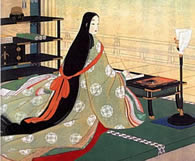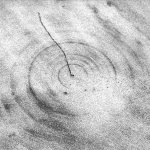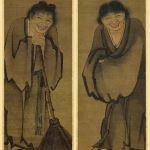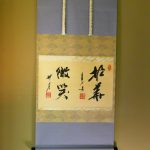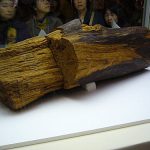Aki no koe – the voice of autumn
It’s the first week of August in the Hudson Valley and the crickets have begun to sing. Their song surrounds the Tea House in waves, as though we’re floating on an ocean of cricketing.
Their song is the voice of autumn and reminds me of this phrase from the Cold Mountain Poems of Han Shan.
Crying in the dew, a myriad of grasses
Singing in the wind, a single chorus of pines.
Cold Mountain is a collection of 310 poems written twelve hundred years ago on the rocks, trees, and temple walls of China’s Tientai Mountains. Han Shan and his friend Shi-de (Japanese: Kanzan and Jittoku), active in the late 8th-early 9th century, were Zen Buddhist monks. Han Shan was a hermit and he begged for food at temples, often sang and drank with cowherds, and became an immortal figure in the history of Chinese literature and Zen. Shi-de was Han Shan’s constant companion, and the temple’s janitor. He is usually depicted carrying a broom. They appear frequently in Zen paintings, representing the rejection of the secular world and the search for enlightenment.
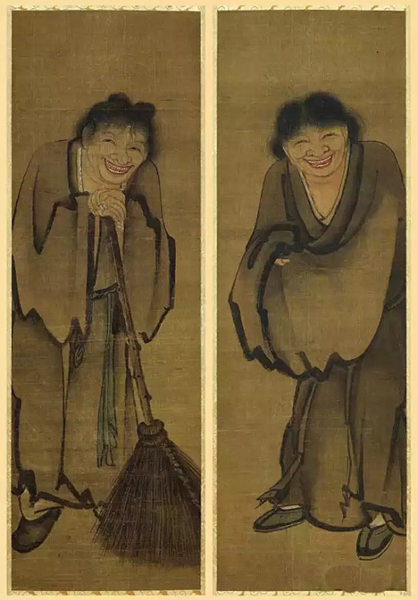
They are quintessential Zen men, usually laughing together, wandering carefree, and enjoying each moment as it is.
Gary Snyder, one of the first Americans to go to Japan to study Zen in the fifties, translated the poems in his book Rip Rap and Cold Mountain Poems. They were the first Zen poems I ever read.
I wanted to be Han Shan. I wanted to live as he did. It was the 70s and my friends and I left the cities, regular jobs, and normal lives. Some of us lived in teepees nestled in alpine meadows, others lived in cabins that lined the side of a dirt road in an abandoned logging camp high up in the mountains. I looked for an old cabin on the back side of Ajax Mountain in Aspen so I could live far from the world like Han Shan. I dreamed I would hike in my food for the week and heat the cabin with wood gathered in the summers. Like Han Shan’s home, there would be a one track path to my place. In the mountains the vastness of space and light gave me a glimpse of something I longed to know more of. If I lived like Han Shan I might find it.
I was eighteen. Out of school. No money. My mother said “Come back home. You can’t live a life of Zen out there.” Or maybe she said, “You can’t live a life of Zen.” At that time I had no idea what Zen was, nor did she. I came home to the city, got a job and eventually found my way to NY Zendo on the upper east side of Manhatten. As soon as I sat down on the cushion, crossed my legs, and breathed into the the deep silence I knew this was what I was looking for. It was home. It was Cold Mountain.
The path to Han-shan’s place is laughable,
A path, but no sign of cart or horse.
Converging gorges – hard to tracec their twists,
Jumbled cliffs – unbelievably rugged.
A thousand grasses bend with dew,
A hill of pines hums in the wind.
And now I’ve lost the shortcut home,
Body asking shadow, how do you keep up?

